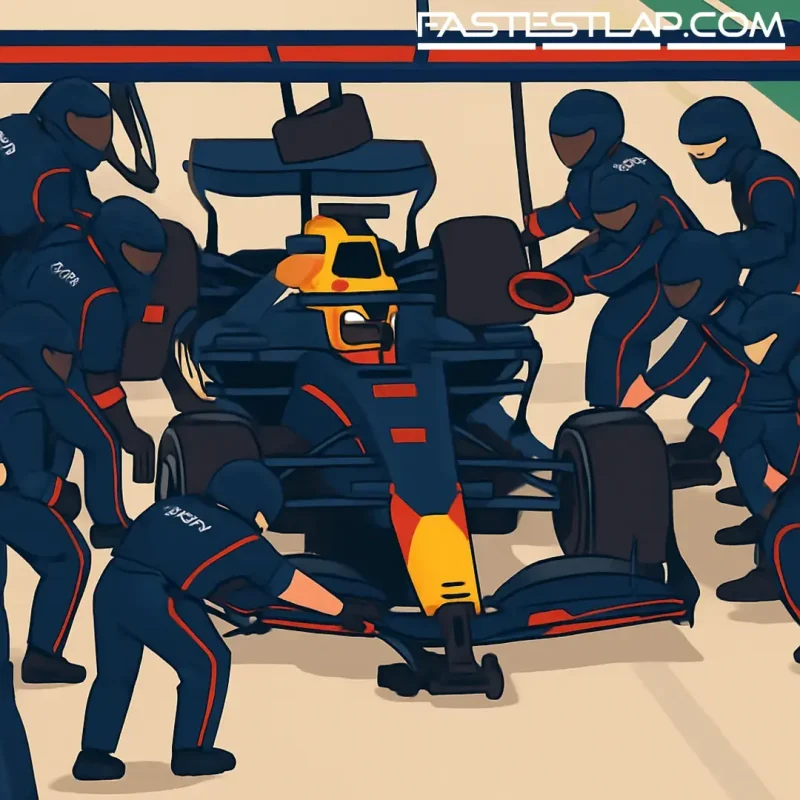Calum Nicholas reminds F1 what a “three‑second job” really looks like
Monza gave us a lot to chew on: a slow McLaren stop, a swapped P2, and a torrent of armchair analysis. Somewhere in that mix, a social media post tried to reduce an F1 mechanic’s contribution to a “three-second work shift.” Former Red Bull mechanic Calum Nicholas — who’s been at the pointy end of more pit stops than most of us have had hot dinners — wasn’t having it.
“BS opinions like this. It’s embarrassing,” he fired back, before laying out the part fans don’t see when the TV trucks cut away from the garages.
Nicholas, a central figure in Red Bull’s pit-wall precision through Max Verstappen’s four titles before stepping away at the end of last season, pulled the curtain on the realities of the job: roughly £60,000 average salaries, 70-hour weeks as the norm, economy flights more often than not, and no bonus for being on the pit crew. And for those who still think some folks are just there to hold a wheel gun, he had a blunt reminder: with only 60 operational staff allowed at the circuit, everybody’s building, repairing and turning the car around. Nobody is just “the pit stop guy.”
The spark for the latest debate was McLaren’s Italian Grand Prix. Lando Norris boxed a lap after Oscar Piastri while leading on the road. McLaren told him there’d be no undercut, but a front-left wheel nut glitch stranded Norris for four seconds — an eternity at Monza — and swung second place to Piastri. Cue team orders to swap them back and cue the backlash. Whatever your view on the call, the men and women in orange didn’t suddenly forget how to execute. Sometimes the margin bites.
Nicholas also added some context from his early years. At 22, with a passport and no mortgage, £42,000 to travel the world in Formula 1 felt like winning the lottery. But that was another era: 17 races, no triple‑headers, and V8s that were comparatively straightforward to strip and rebuild. Today’s 24‑race slog with complex hybrid power units is a different beast. The job didn’t just get busier; it got harder.
That bleeds into the cost cap conversation — a touchy subject up and down the paddock. Nicholas believes the cap has squeezed the people at the coalface. “The cost of the cost cap,” he hinted, could fill a chapter — in fact, it has in his upcoming book. But even without budget limits, he doesn’t expect pit crews to be clearing six figures several times over. “If they ever do [earn £350k], I might consider a comeback,” he joked.
Strip away the noise and you’re left with a simple truth that tends to get lost in the rush to apportion blame: pit stops are the sharp end of an enormous, exhausting grind. Mechanics land on a new continent, build the car from freight cases, work into the night, turn it around after every session, fix the bits drivers break, and then find three tenths in the box while a TV director counts their mistakes in slow motion. It’s a high-wire act, not a three-second shift.
To his credit, the original poster backed down and apologized, saying he’d underestimated the role and would be taking the time to understand it better. A rare, welcome detente on social media.
There’s no doubt the Monza stop hurt McLaren. It also underlined just how polished the sport has become when a single four-second pause feels like the sky falling in. Most of the time, the choreography is perfect. When it isn’t, it’s human — and it’s usually fixable by the same people who got it right the previous 499 times.
So the next time a pit lane hiccup vaults to the top of your feed, remember the bit you didn’t see: the seven-day weeks, the red-eye flights, the split knuckles, the rebuilds in cramped garages, and the fact that everyone wearing overalls is doing far more than the three seconds the camera shows you.




